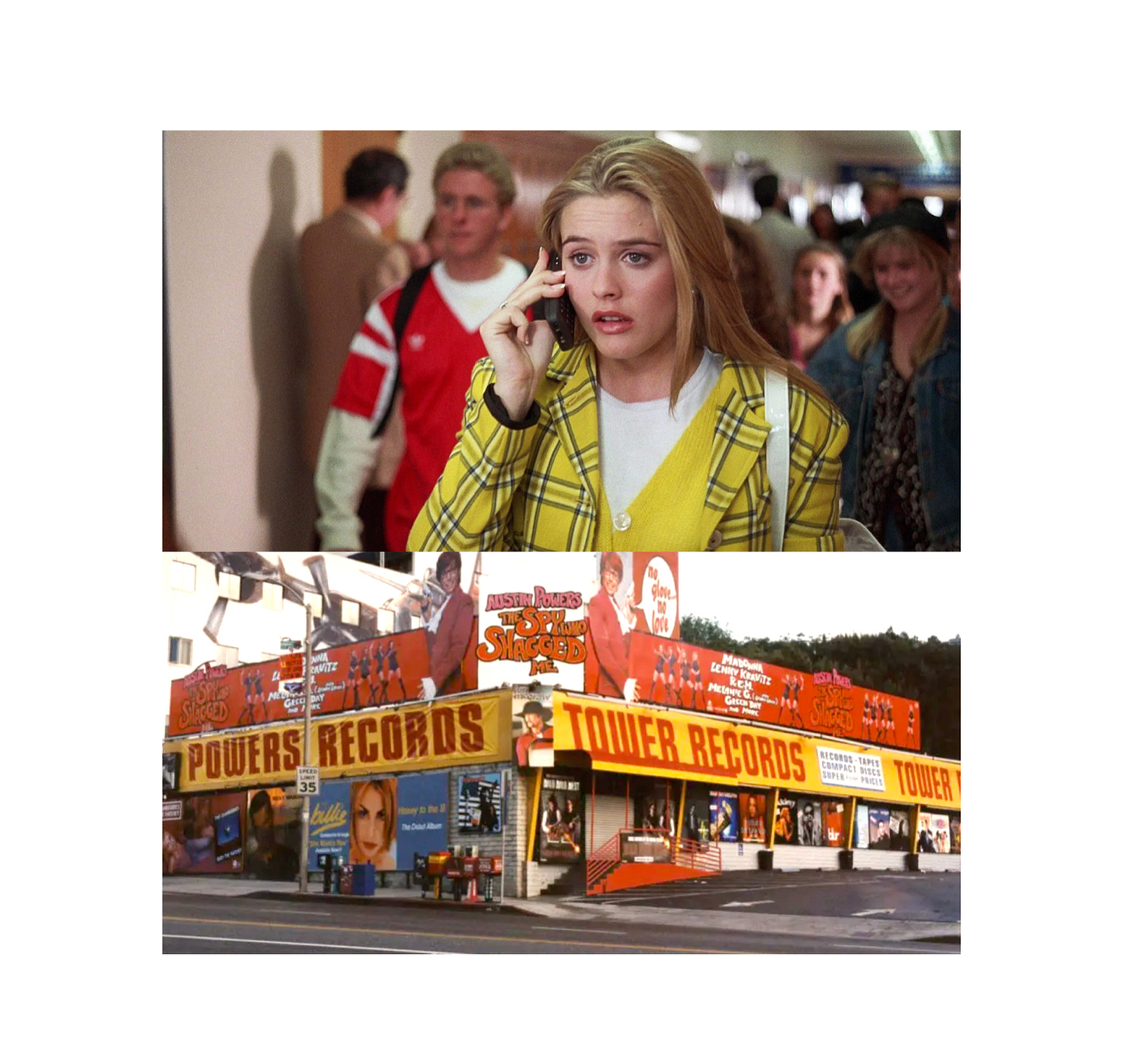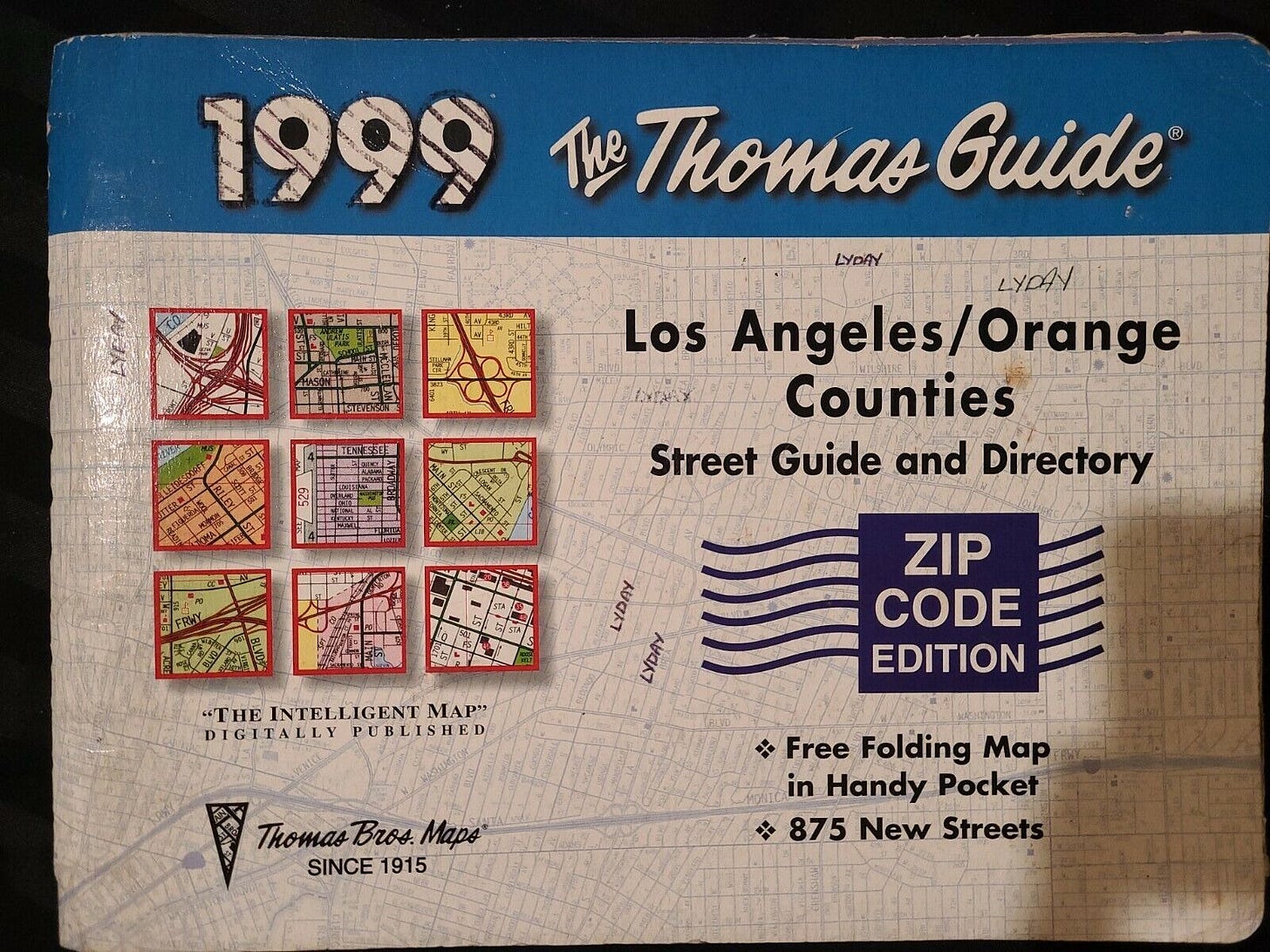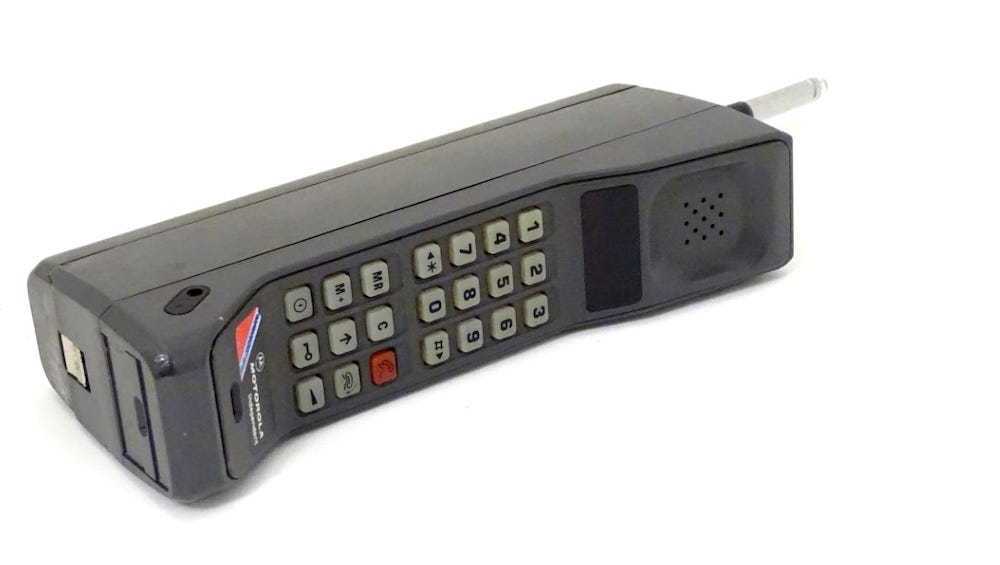Party like it's 1999 - Part(y) 2
How to (realistically) practice technological abstinence in the always-on era
8 minute read
Reference: Party like it's 1999 - Part(y) 1
FLASHBACK: A TYPICAL NIGHT OUT IN LA IN THE 90s
In 1992, I sat across from my buddy Brian, making plans to go to a new LA club. We each took our own car, so I’d have to park mine for the night, on a safe residential block. Later, when I circled the block looking for parking, tailed by Brian’s car, another car pulled in between us and we lost each other. I circled the block 10 times but couldn’t find him. I pulled over in front of a bar to check my voicemail on a payphone - no messages! After driving towards a friend’s house nearby I saw another payphone, pulled over and checked voicemail. A message from Brian told me to meet him at The Westside Pavillion parking lot (I thought). I drove there immediately but he was nowhere in sight. Shit, he said Pavilions Market. I headed to my friend’s place in the neighborhood to wait it out and check voicemail again. A new message: Brian hooked up the phone in his dad’s car and gave me the number. I called it but got voicemail. So I left the address of my friend’s place. Tick tock, still no Brian. Where was he? Turns out he was stoned when he heard my message and got the street name wrong — knocked on the door of some stranger who was super-pissed off (it was late). He ran back to his car to try to call me but the cops were slowly scanning the road with their brights on, freaking him out so he drove to a gas station. I called him again and finally he picked up. We met at the AM/PM, and I followed him CLOSELY all the way to our destination.
This true story farcically reflects the pain in the ass of going out in LA circa ‘92 but it also underscores that taking a step back from 2020s tech and Partying like it’s 1999 (so to speak) has its limits. If you want to engage in this recommended practice, go back in time to the dial-up internet era - a transactional period for the WWW. People were carrying flip phones sans internet (ah the memories of my fuchsia Eriksson flip - a thing of beauty). We lived in a state of presence with our world. Texting non-stop on your phone was damned-near-impossible because you had to button-scroll through the alphabet - and ended up writing Prince ‘I would die 4 u’ style messages (‘RUOK’ and the like). Good times.
The foundation of the (PLINNN) practice: Screen-Free Sundays
Screen-free Sundays is my main ‘Party like it’s 1999’ (PLINN) habit that I commit to every week. When I started it, it was challenging. The compulsion to Google-search rears its ugly head - some fact you’ve forgotten but feel you must know. Giving in robs you of your memory (which exercises a muscle and can atrophy from disuse).
Each person can negotiate the screen-free day differently. See Tiffany Shlain’s book 24/6 on this topic for an anecdotal overview of said approaches. Mine is to turn off my smartphone but carry around a flip phone/dumbphone for emergencies (car breaking down, etc.). Side benefit: the battery life on these is unbeatable - like weeks long if you’re not a frequent user, so they’re also a good backup device during outages.
I don’t want watch TV - which isn’t an internet era distraction granted, but let’s face it, streaming TV magnifies binging tendencies. Instead, I listen to the radio, that wonderful art form which has mostly faded away (apart from occasional Uber journeys), lost in today’s sea of endless doom-scrolling. I listen to an oldies music show with a DJ who weaves stories into the sets. It’s a brilliant exercise - you once again engage your human-born visual imagination.
On Sundays, I set an ‘out of commission’ email auto-reply, explaining that folks can, in an emergency call my burner or land line (I’ll never get rid of that).
I do different things on those screen-free days: take care of a dog, paint, write or journal, sketch, cook, read, go to the gym, shop. The result: I tend to feel incredibly creatively motivated, get to bed on time and feel well-rested the next day (for a change).
Flexibility is key
When I got to the gym as I have to set up my elliptical program on a screen. I don’t beat myself up about this but do avoid the interactive country-scape program. I don’t tend to use Sat Nav on Sundays (but do keep a backup paper map in the car). This isn’t a hard and fast rule - lest I get lost in some random neighborhood at night.
There are occasions when I am traveling on a Sunday and may decide not to do the screen-free day that week because it’s impractical. It should be a meaningful experience - not a tickbox task.
Small tweaks to your workday week rituals
One exercise you can do from time to time is to pretend there is no Google (ah, to dream) - and test your memory. With the number of dementia cases in society today (and this is largely amongst a generation that did not grow up using the internet) I shudder to think of what awaits our ‘internet-reared generations.’
I also set reasonable parameters around my time during the work week. I commute on a train a few days a week, and committed to walking to the station (about 10-15 minutes) without distracting myself with a device.
My boss once asked what I did on my commute time. I thought of making something up to impress him (‘I read Harvard Business Review’) but I decided to be honest and tell him I use it to dream, away from screens. My cousin, who’s in a key leadership role at a Fortune 500 type company, said that his boss told him ‘I pay you to come up with innovative ideas - not to sit in front of a screen.’ It’s like what they say about being in the shower (or on the can) and coming up with your best ideas. So on the train, I often listen to music and stare out the window (the music isn’t a requirement but a nice mood-setter).
I usually don’t bring my phone when I do a gym workout (unless there’s a reason to do so like an extreme weather warning or some family situation that requires me to be accessible). This allows me to be more present and I believe boosts my workouts.
Big changes that can have a major impact
A while ago I deleted Instagram, Facebook, Youtube, Reddit, etc. Obviously Substack has a social element but I don’t engage with it often. Pulling out of often-toxic social media and more importantly forcing myself to connect with friends offline is hard but important. Then again quitting crack is hard too but it’s good for you. I now know that my active friendships are real.
When I had a gazillion friends from every part of my life shored up in social, sure, we may have known more about each other’s daily lives (I’m doing a cleanse, I sat on a beach in the Caribbean) but we failed to cultivate relationships. Corresponding through emails is hard work (sometimes I take weeks to write back, but when I do it’s genuine and heartfelt). I think of it as returning to the lost art of letter writing. Phone calls are great too - they’re personal. I can focus on someone’s voice. It’s not some one-way TED talk but an interactive conversation - those are the best!
The sense of being (not) watched
Even if it’s an illusion I love feeling intimate with my music - being the one to make those choices of ‘what’s next.’ A couple of years ago I started collecting CDs again (unearthing albums from my parents’ house to get me started). Sure they long predate 1999 but they’re still being produced in limited editions. I even discovered a cool record/CD store in my neighborhood whose shelves are a joy to peruse (Empire Records anyone?). There’s a whole movement back to CDs (even amongst GenZs) that I learned about.
Beyond listening to them at home on a pristine white Panasonic CD player, I digitize music and upload to a Sony MP3 player/dictaphone. This stops me from viewing music as a commodity. I genuinely value each tune and spend time with it - rather than skipping around to the ‘anything under the sun’ catalog (Apple Music, Spotify). I appreciate the sense of not being spied on by a tech company looking to inject my data into an algorithm that directs me to its music suggestions (preferring to do that on my own physical time in a record shop). This is liberating even if that freedom is minute compared to all the surveillance (CCTV, enterprise software, search engine AI) I encounter daily. Ditto for books (versus Kindles). I don’t want to share my underlines/notes. They’re my personal graffiti on my physical book which offers the visceral experience of a leaf-through and satisfaction of a progressing bookmark.
I briefly went back to cassettes because I wanted to re-explore some old mix tapes gifted to me and to listen to my childhood answering machine tapes (Party like it’s 1989). But this format is obviously low quality.
Cash: Use it or lose it
I mostly pay by card - it’s quick and convenient and loads of retailers are sadly increasingly not accepting cash. But there are some smaller vendors that prefer cash - tradespeople, hairdressers, cabbies. This is the only private form of payment we have. I know the data on each of us individually is inconsequential but it’s the principle of it - you should be able to privately transact when you want to, it’s your money. It’s also not a bad idea to have small reserves of cash ready for outages (one Uber driver told me he’s hoarding silver - pretty extreme - but not totally crazy). Worth noting: the 2024 Crowdstrike cyber outage affected ATMs and meant that some supermarkets couldn’t accept credit card payments for a few days.
I’ll talk more about the benefits of these types of changes in future posts. Signing off now, to be in the real world!




